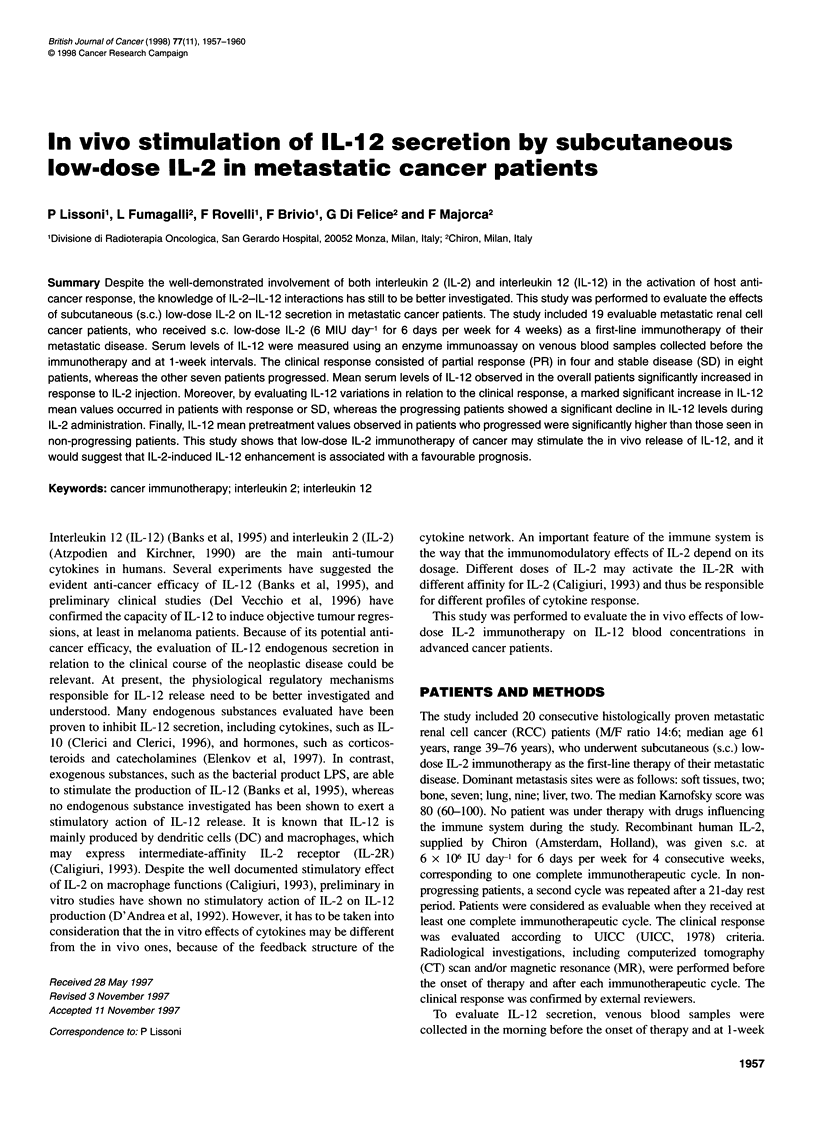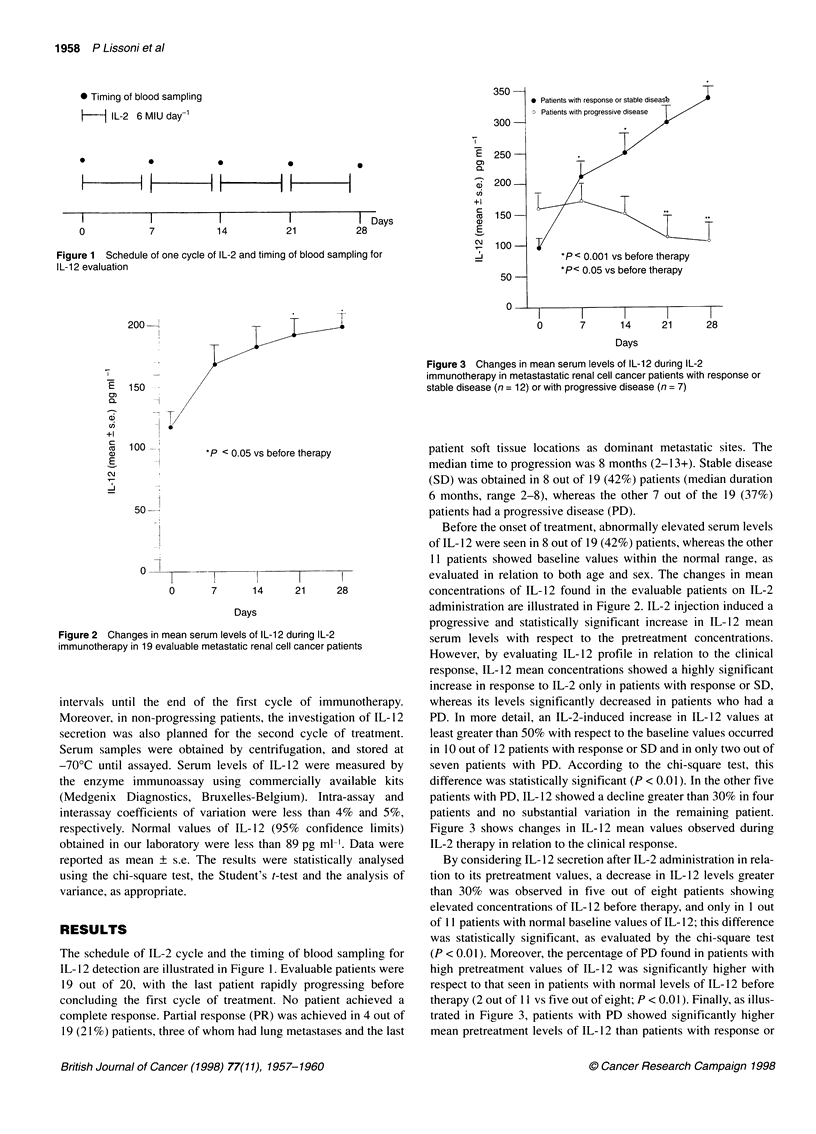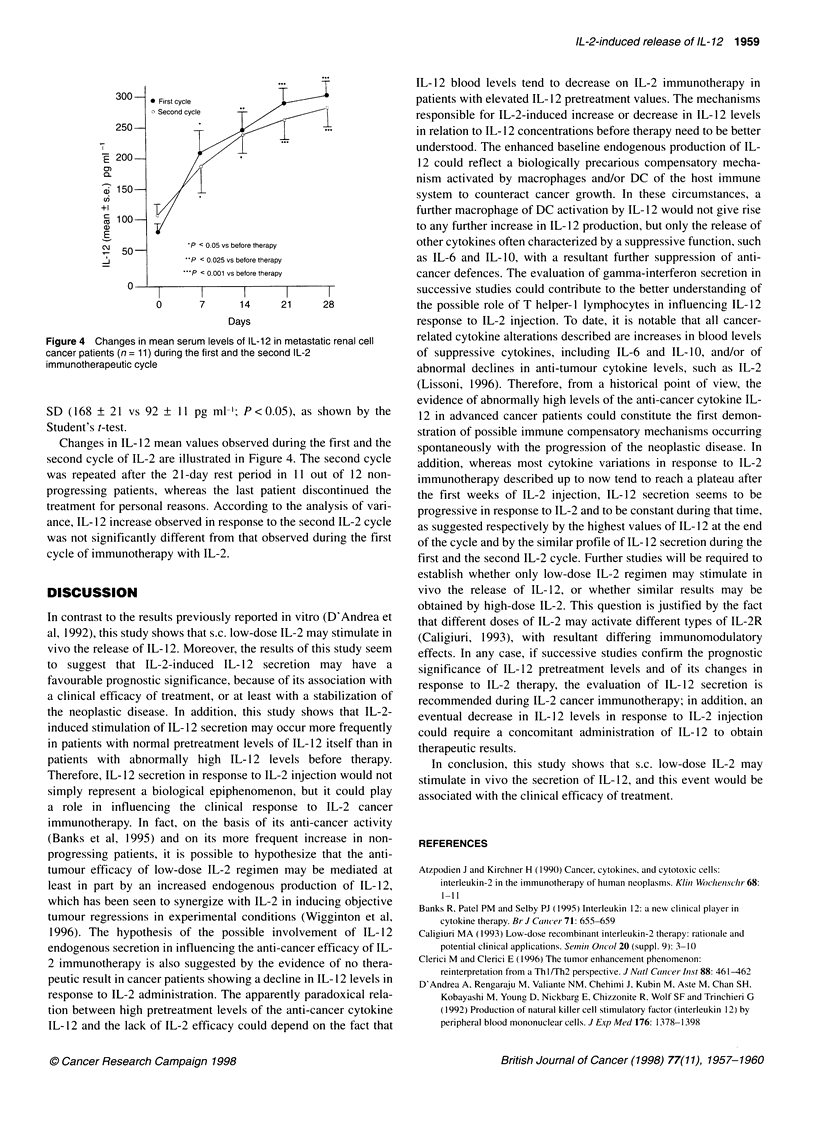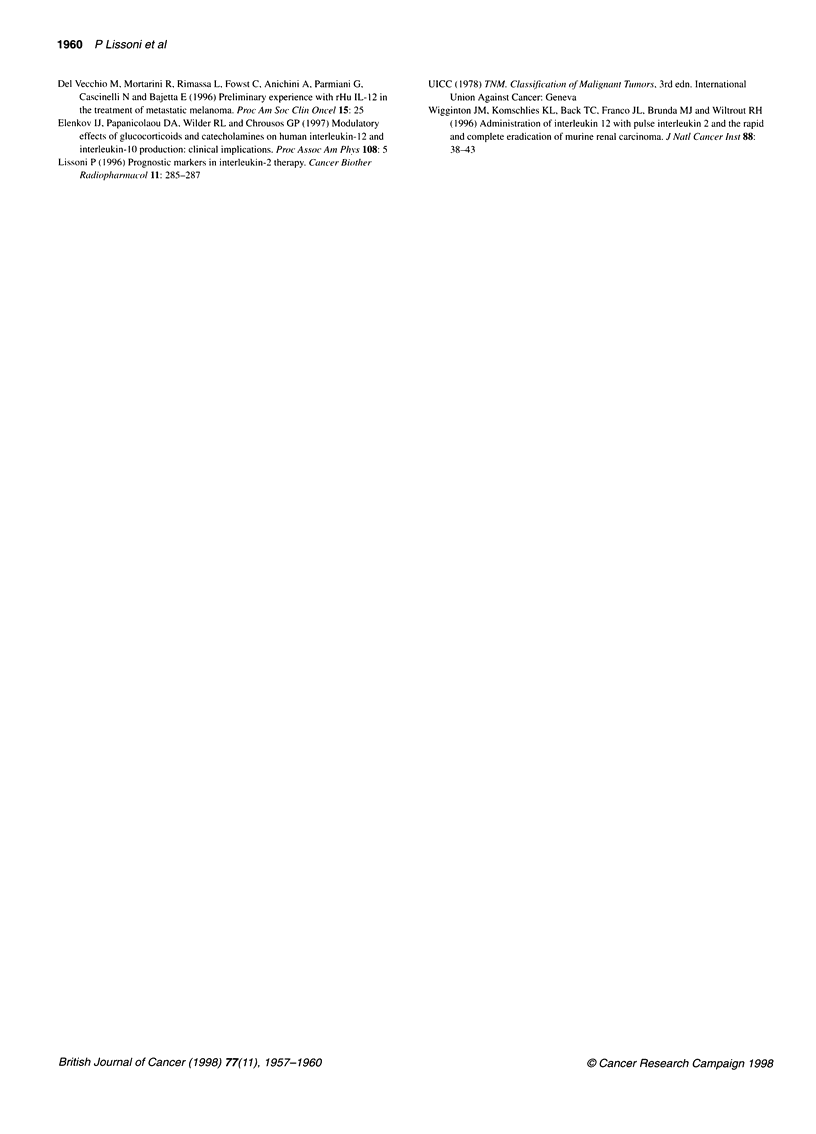Abstract
Despite the well-demonstrated involvement of both interleukin 2 (IL-2) and interleukin 12 (IL-12) in the activation of host anti-cancer response, the knowledge of IL-2-IL-12 interactions has still to be better investigated. This study was performed to evaluate the effects of subcutaneous (s.c.) low-dose IL-2 on IL-12 secretion in metastatic cancer patients. The study included 19 evaluable metastatic renal cell cancer patients, who received s.c. low-dose IL-2 (6 MIU day(-1) for 6 days per week for 4 weeks) as a first-line immunotherapy of their metastatic disease. Serum levels of IL-12 were measured using an enzyme immunoassay on venous blood samples collected before the immunotherapy and at 1-week intervals. The clinical response consisted of partial response (PR) in four and stable disease (SD) in eight patients, whereas the other seven patients progressed. Mean serum levels of IL-12 observed in the overall patients significantly increased in response to IL-2 injection. Moreover, by evaluating IL-12 variations in relation to the clinical response, a marked significant increase in IL-12 mean values occurred in patients with response or SD, whereas the progressing patients showed a significant decline in IL-12 levels during IL-2 administration. Finally, IL-12 mean pretreatment values observed in patients who progressed were significantly higher than those seen in non-progressing patients. This study shows that low-dose IL-2 immunotherapy of cancer may stimulate the in vivo release of IL-12, and it would suggest that IL-2-induced IL-12 enhancement is associated with a favourable prognosis.
Full text
PDF



Selected References
These references are in PubMed. This may not be the complete list of references from this article.
- Atzpodien J., Kirchner H. Cancer, cytokines, and cytotoxic cells: interleukin-2 in the immunotherapy of human neoplasms. Klin Wochenschr. 1990 Jan 4;68(1):1–11. doi: 10.1007/BF01648882. [DOI] [PubMed] [Google Scholar]
- Banks R. E., Patel P. M., Selby P. J. Interleukin 12: a new clinical player in cytokine therapy. Br J Cancer. 1995 Apr;71(4):655–659. doi: 10.1038/bjc.1995.130. [DOI] [PMC free article] [PubMed] [Google Scholar]
- Caligiuri M. A. Low-dose recombinant interleukin-2 therapy: rationale and potential clinical applications. Semin Oncol. 1993 Dec;20(6 Suppl 9):3–10. [PubMed] [Google Scholar]
- Clerici M., Clerici E., Shearer G. M. The tumor enhancement phenomenon: reinterpretation from a Th1/Th2 perspective. J Natl Cancer Inst. 1996 Apr 3;88(7):461–462. doi: 10.1093/jnci/88.7.461. [DOI] [PubMed] [Google Scholar]
- D'Andrea A., Rengaraju M., Valiante N. M., Chehimi J., Kubin M., Aste M., Chan S. H., Kobayashi M., Young D., Nickbarg E. Production of natural killer cell stimulatory factor (interleukin 12) by peripheral blood mononuclear cells. J Exp Med. 1992 Nov 1;176(5):1387–1398. doi: 10.1084/jem.176.5.1387. [DOI] [PMC free article] [PubMed] [Google Scholar]
- Lissoni P. Prognostic markers in interleukin-2 therapy. Cancer Biother Radiopharm. 1996 Oct;11(5):285–287. doi: 10.1089/cbr.1996.11.285. [DOI] [PubMed] [Google Scholar]
- Wigginton J. M., Komschlies K. L., Back T. C., Franco J. L., Brunda M. J., Wiltrout R. H. Administration of interleukin 12 with pulse interleukin 2 and the rapid and complete eradication of murine renal carcinoma. J Natl Cancer Inst. 1996 Jan 3;88(1):38–43. doi: 10.1093/jnci/88.1.38. [DOI] [PubMed] [Google Scholar]


